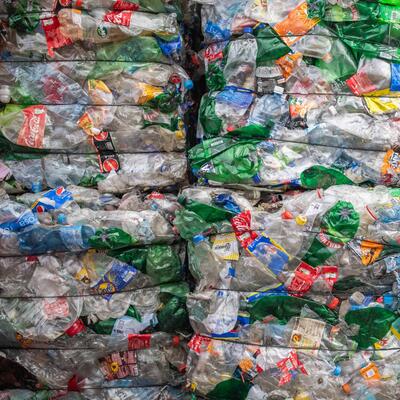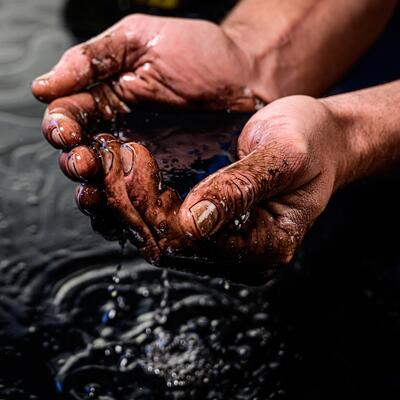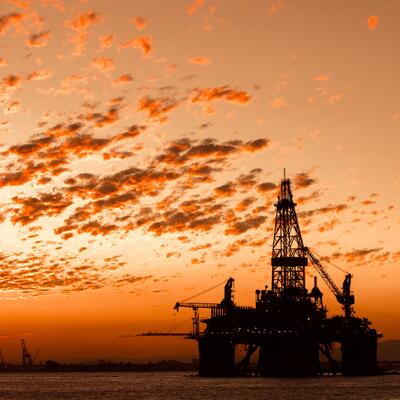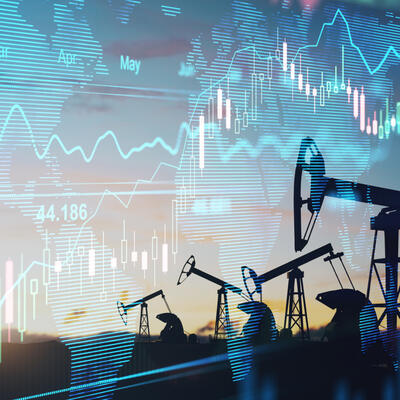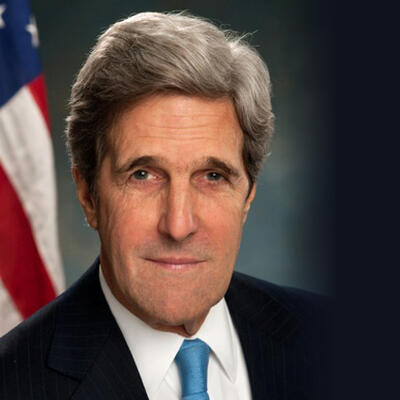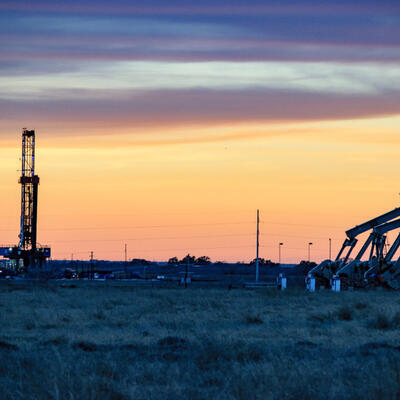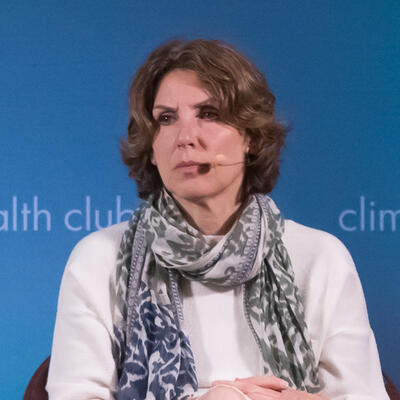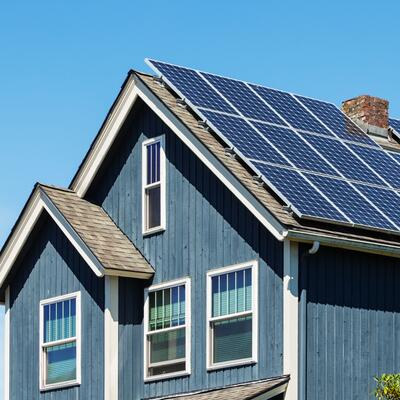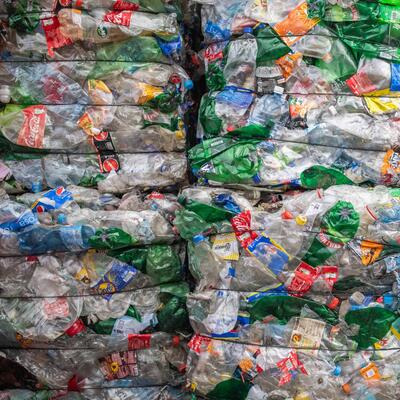
REFRESH – Big Plastic: The New Big Oil
Guests
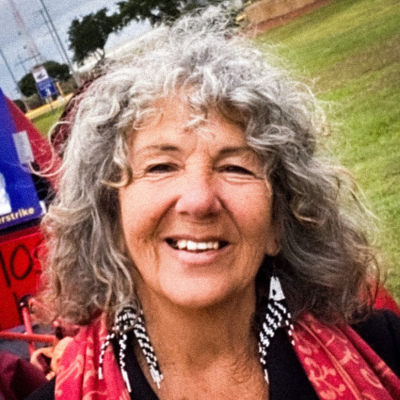
Diane Wilson
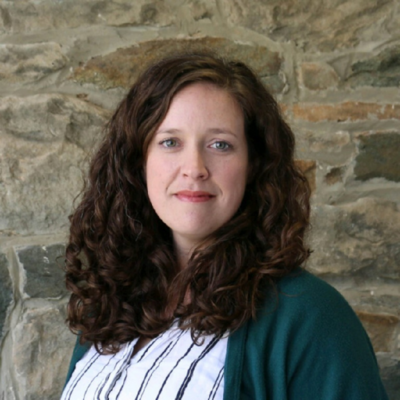
Jane Patton
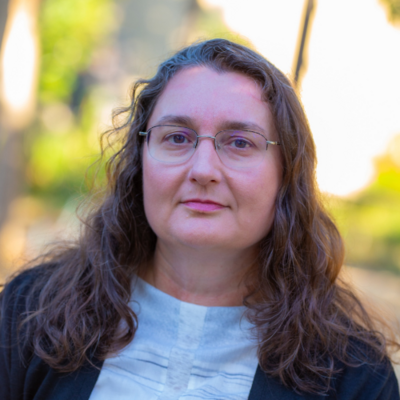
Susannah Scott
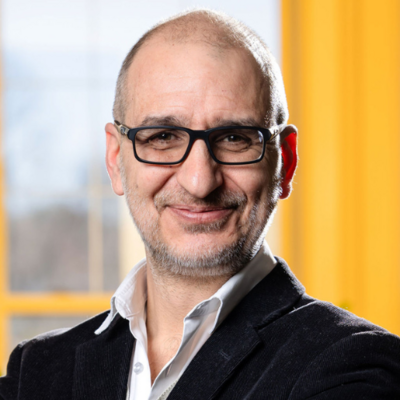
David Azoulay
Summary
Plastics are everywhere. Jane Patton, U.S. Fossil Economy Campaign Manager at the Center for International Environmental Law - says, “They're finding microplastics in babies' first poops, which is really dangerous and scary when we consider the full chemical profile.”
Diane Wilson is a lifelong shrimper in the Texas Gulf. When Formosa Plastics built a factory in her small rural community, the county gained the dubious honor of being named the most toxic in the country.
Wilson took on the multinational company. She would kayak around the waters surrounding the factory, collecting pollution and water samples. In the process, “I lost my job. I lost my boat. I lost my marriage. I lost friends. And all because I started watching and fighting Formosa,” says Wilson.
In 2019, a federal judge found Formosa Plastics guilty of being a serial offender of the Clean Water Act. The company agreed to a 50 million settlement and zero future discharge from the plant. But that did not deter the company from its continued pollution. “In the first year [the fine] was $15,000 per day and then it was $20,000, $25,000. Now it's $65,000 per day,” Wilson says. “Since June of 2021, when we really started having a way to monitor their discharge, they have violated it over 600 times and they have been penalized by us over 16 million dollars.”
“To me, the solution is the era of plastic production has to end,” says Wilson.
While the idea that plastics are a blight on our environment is not new, it's becoming clear that plastics are a significant climate threat as well. The production of plastics alone produces about 4% of global greenhouse gas emissions.
Oil and gas companies see that heightened awareness of climate change is creating an existential threat to their fossil fuel profits. And so they are doubling down on the petrochemical side of their business. The Center for International Environmental Law’s Jane Patton says, “We know that the industry has for some time been planning to double or even triple the production of plastics by 2050.”
The industry would like us to believe that recycling is the solution. But only 9% of the plastic ever produced has been recycled. Susannah Scott, chemistry professor at UC Santa Barbara, explains that plastics are not like aluminum cans, which can easily be melted down and formed into new aluminum cans, because aluminum is just one, single element.
“There are hundreds of different types of plastics and they're all mixed together,” Scott says. And “when you reprocess plastics or polymers, these are organic molecules that actually don't like to be reprocessed. when you melt them, when you stretch them again, they break and the difference in the properties of the recycled material is enough to make it problematic to reuse them for the same purpose.”
Negotiators from 175 countries have been working to create a Global Plastics Treaty. Momentum had been building. Just a few weeks ago in Busan, South Korea negotiators had hoped to reach a final agreement. That didn’t happen.
David Azoulay, Director of Environmental Health at the Center for International Environmental Law, says the failure to reach a conclusion in Busan has a silver lining: “The only agreement that could have been finalized in Busan would have been an extremely weak agreement, basically one that would have given everything that the Petro state wanted.”
Instead, says Azoulay, “We saw the vast majority of countries who want a treaty that is fit for purpose also establish very clear red lines about what the treaty needs to deliver to be effective and to be finalized.”
Negotiations are expected to continue in the middle of next year.
Episode Highlights
4:17 - Diane Wilson on growing up in a small Texas Gulf community
7:28 - Diane Wilson on the personal cost of going up against a plastics factory
13:12 - Diane Wilson on a meeting with an EPA criminal investigator
18:21 - Jane Patton on the lifecycle of a plastic yogurt cup
22:13 - Jane Patton on the plastics emissions
28:49 - Jane Patton on UN Plastics Treaty
32:02 - Susannah Scott on what makes up plastic
33:19 - Susannah Scott on why plastic is so difficult to recycle
37:10 - Susannah Scott on the challenges of collecting and sorting plastics for recycling
40:35 - Alexis Jackson on how we’ve become so reliant on plastics
45:28 - Alexis Jackson on how the UN Plastics Treaty could factor into our lives
What Can I Do?
Resources From This Episode (4)
Full Transcript
Note: Transcripts are generated using a combination of automated software and human transcribers and may contain errors. Please check the actual audio before quoting it.
Greg Dalton: I'm Greg Dalton,
Ariana Brocious: I'm Ariana Brocious.
Greg Dalton: And this is Climate One. We know that plastics are bad and we do our part to avoid plastic packaging, recycle where that actually happens, and bring canvas bags to the grocery store. I have one friend who takes her own food containers to restaurants, so she doesn't have to get a new doggie bag. She puts her food in that and takes it home.
Ariana Brocious: Wow, that's a commitment. That's, bravo. But there are some places in our lives where we're just stuck using plastic. And the place that this is most apparent to me is when I go grocery shopping. Go into the produce section and everything, it seems like, is wrapped in plastic or you're expected to put it in a plastic bag just to get it to your house. And it makes sense for things like berries, maybe, that are squishy. But when it comes to things like oranges, you don't need a plastic bag for those. Just put them in your cart. And it frustrates me because I feel like I come home with all this plastic that I didn't want, and I don't even have a choice about it. It's just inherent in grocery shopping.
Greg Dalton: Right. When I'm sitting there looking at spinach like, ah, does it really have to come in a box of plastic? And yes, I know there are good uses of plastic, medical equipment, cars, EVs that we talk about, where it provides very useful functions in our lives. It's just that cheap plastic is such a versatile thing. It's not all the same. It’s really the single-use plastic that’s the problem.
Ariana Brocious: Right. And there's no producer responsibility. So the companies that make the plastic and all the millions of companies that use the plastic don't have to worry about where it ends up.
Greg Dalton: And the reason we're sweating over plastics isn't just how they are disposed of. It's how they are made in the first place. Nearly all plastics are made from fossil fuels. A lot of people don't know that. I saw a poll recently that said 7 out of 10 Americans didn't even know that fossil fuels and plastics are linked in this way.
Ariana Brocious: And as much of the world is trying to move away from burning fossil fuels, big oil and gas companies see plastics as sort of a survival line, right? This like a place they can go, an industry they can continue to exist and thrive.
Greg Dalton: Right, take the oil out of the ground, don't burn it, do something else with it. And I used to think that maybe that wouldn't be so bad. I mean, as awful as plastic trash is for our environment, wouldn't turning fossil fuels into plastic still be better than burning oil and gas and causing global climate change?
Ariana Brocious: Yeah, it turns out that's not the case. The plastics industry is incredibly energy intensive. It produces roughly 4 percent of global greenhouse gas emissions.
Greg Dalton: Wow, that's huge, and to put that in perspective, that's around the same amount as the climate pollution coming from all planes flying around.
Ariana Brocious: And that's just from making plastic. After the plastic is used, often just one time in so many cases, we throw it away, and as it decomposes, it continues to release greenhouse gases, ethylene and methane, which are bad, bad for the climate.
Greg Dalton: And I know what many are thinking. What about recycling? Isn't that supposed to make it okay?
Ariana Brocious: Yeah, once again, no. It's not that we shouldn't recycle, but only a tiny fraction of all the plastic made is actually recycled, and even when that works, it uses even more energy.
Greg Dalton: Right. Which means more climate disrupting pollution, et cetera.
Ariana Brocious: Yeah, exactly. Luckily, this problem is not going unnoticed. California Attorney General Rob Bonta has sued ExxonMobil for engaging in a decades-long campaign of deceiving the public into believing that recycling could solve the plastic pollution crisis. Essentially that it’s somehow our responsibility to clean up their mess. And the United Nations is working to hammer out a global treaty aimed at limiting plastics production.
Greg Dalton: And while big organizations like the UN are working on a global level, so are individuals on a local level. One of those people is Diana Wilson. I'm excited to have her on the show today. She leads the San Antonio Bay Waterkeeper and has won the Goldman Environmental Prize for her work. She's also a lifelong shrimper in the Texas Gulf, and she's battled the plastics industry there. She kayaks around the waters surrounding a factory in her community, collecting pollution and water samples. The pollution from that factory made her small rural county one of the most toxic in the U.S. A far cry from what it looked like when she was young.
PROGRAM PART 1
Diane Wilson: The whole front of Sea Drift was nothing but fish houses and boats and, all of the bays of the Texas Gulf coast, right there in front of us. So when I was a little girl, the heart and the soul of the community back then it's like nobody had air conditioning. You just had, you know, windows raised up with screens on them and you could hear the shrimp boats leaving in the morning. So I always grew up hearing the wind and hearing those shrimp boats. And then, you know, in the evening, when those shrimp boats started coming in, it was your dad's, your grandfather, your uncle's, your brother's, it's the whole community. And I remember walking down to the bay with my sisters and we were always barefooted and on a oyster shell road. And I can remember Going down there to the fish house and seeing all of those boats come in and they would, there would be so many boats in the harbor that they would be tied up to each other and they were just jumping from one, one, uh, uh, back deck to another. And it was, it was like the pure heart of a community.
Greg Dalton: And as an adult, you learned that Calhoun County, your county, was ranked the most toxic county in the US. How did that news impact you?
Diane Wilson: Well, I, I can remember I was actually, I was sitting in a fish house because shrimping had started to fall off. So I, I had my shrimp boat tied up and I was sitting in a fish house. I was running Froggy Shrimp Company, and I remember I had this shrimper walk in and he was not out because he had, uh, he had cancer and he was going to chemotherapy in Corpus, but he pitched this newspaper at me and on like on the front page, it was the first time the toxic release inventory or the community right to know was made public. It was the first time industry had to report what they were putting out the smokestacks, what they were putting in the water, what they were injecting, what they were putting in trucks running through your community. And we were number one. Our tiny, little, rural community. I bet the entire county did not have more than 15,000 people. And it blew, it literally blew my mind. I could not believe I had never heard, you had never heard the first word anywhere, any kind of public awareness of it. And it, it shocked me quite frankly, it really shocked me.
Greg Dalton: Right, your little, uh, coastal paradise being, uh, that way. So nurdles are little plastic pellets that get reformed into countless products that we have all over our lives. Formosa Plastics Point Comfort Plant on the Texas Gulf produces more than 1 trillion plastic nurdles per day. How did the Formosa Plastic Factory affect your life and your livelihood?
Diane Wilson: I lost my job. I lost my boat. I lost my marriage. I lost friends. All because I started watching and fighting Formosa because they were a very destructive plant. They were from Taiwan and they, matter of fact, they came to Texas because they were trying to build in Taiwan, and the villagers were so angry at them that they were throwing rocks at them. So Chairman Wong and, uh, the Formosa Plastics, they decided, well, we're going to do this big expansion and we're going to do it, actually, in either Texas or Louisiana, which was going to give them the most, and Texas gave them the most. And so here was this notorious international polluter and they came to our county and matter of fact, the state of Texas promised them there would be no questions asked about their environmental record, and everything would be given to them and there would be no permit hearings. It was without question.
Greg Dalton: Sounds like a pretty sweetheart deal for Formosa. How did the plastic pollution affect the water, local fishing, and shrimping businesses?
Diane Wilson: When I got involved, they were doing the largest expansion in Texas history. And, uh, so they were increasing all of these different production units and not only were they making PVC powder, they were making polypropylene, polyethylene, and it was not only the powder. And like you see the PVC powder, that's vinyl chloride that is one of the key ingredients in it and you have a community that is right across the street from Formosa and you have workers nose to nose with this stuff. You're losing it in the units. You're losing it in the way they're putting it in the rail cars or they're putting it in the trucks. And it was like blowing all over, all over the fields. All over the communities. It was in their yards. It was in their swimming pools. It was on their trucks and it was going in the bay and all of these storm drains were moving it to the stormwater outfalls and they were moving it to Matagorda Bay where you have the Vietnamese shrimpers. You have the Hispanic oystermen. You have, we, we, our community, our whole history, the legacy, real legacy of this county was as a commercial fishing. And matter of fact, at one point more shrimp were imported out of this area than any place in the United States. And we have went from, from having this to absolutely zero. My community lost five fish houses, lost boats. And it's like, it was extremely destructive.
Greg Dalton: So this big factory comes in, has this impact on the culture, community and ecosystem that is the livelihood. When you started fighting Formosa Plastics 35 years ago, what did people say about you?
Diane Wilson: Well, well, when I, when I first started, I remember the first thing that I did is I went down to City Hall and to say I wanted to kind of lease this little building so we could have a meeting about that information and the next day I had the secretary come down to the fish house and nobody came down to fish house. Trust me. It was fishermen. It was smelly. There were shrimp juice. It was 30 old boats and motors. And here come this woman and a real nice dress. And she said, Diane, you, you can't have the meeting. You can't have the meeting. You have to get it out. She said, there's too many red flags or just red flags. And I was, you know, and this was in the first, almost the first day after I, And I had no idea what she was talking about. I was a fisherwoman. I knew nets. I knew motors. I knew the bay. But I didn't know chemical companies or anything about them. And, uh, and then the, the second day I had the bank president In a three piece suit, in shiny shoes, he come down to the docks where I was standing and he said, Diane, are you fixin to start a vigilante group, fixin to roast industry alive? And I'm like, what? I had no idea what on earth he was talking about and they apparently started calling my brothers who were shrimpers and they said you better handle that sister of yours and they told my husband is what's the matter? Can't you handle her? And it's like, and then they started saying I was a spy hired by Louisiana to get it kicked out of Texas and send it on back to Louisiana. I mean, they were calling me hysterical. Then when that didn't work, they said, Oh, I was in it for the glory. And they, a lot of them said, I just wanted a truck from Formosa. That's why all of this is called, she wants a job so she can get a truck.
Greg Dalton: So you finally got a meeting with a criminal investigator from the EPA. What did he say to you? What was that meeting like?
Diane Wilson: Well, it was, it was, it was a very strange meeting because it was an EPA criminal investigator. They are hard to get a hold of. They're even harder to arrange a meeting with. And you have to get in these very private places so you can talk quietly. And so nobody will be seen. The worker who's given evidence won't be intimidated and won't be scared. And so we got this quiet place and they have a tape recorder and I had the shift supervisor. I had all the documentations that, and he freely admitted he had been lying about the releases at the plant ever since for 25 years, for 25 years. I mean, yes. And so, and the criminal investigator, he turned off the tape recorder and he said, If I am going to have to, uh, uh, sit down and spend all this time writing up a report, he said, I am not going to waste it on this. He said, give me a dead worker. He said, I can, I can do something with that. But he said, I can't do nothing. He said, this is going to go nowhere.
Greg Dalton: Well, in 2019, a federal judge did find Formosa Plastics guilty of being a serial offender of the Clean Water Act and agreed to a 50 million settlement and zero future discharge from the plant. Did the judgment stop Formosa Plastics from polluting?
Diane Wilson: We demanded 50 million dollars, zero discharge of plastic, but we demanded enforcement, monitoring, cleanup, and fixing the, uh, problems inside the units. And so, this was important because it wasn't the state, it wasn't the EPA, it was we have monitors and whenever they violate it, we fine them. In the first year was 15,000 per day and then it was 20,000, 25,000. Now it's 65,000 dollars per day for those violations. And, since June of 2021, when we really started having a way to monitor their discharge, they have violated it over 600 times and they have been penalized by us over 16 million dollars.
Greg Dalton: Wow. So the pollution continues. Sounds like they don't care about the fines.
Diane Wilson: Yeah, you know, they make a billion dollars at this community per year. So you're right. I mean, uh, 60 million is absolutely zero. But for me, to me, the solution is the era of plastic production has to end.
Greg Dalton: Diane Wilson, Executive Director of San Antonio Bay Waterkeeper and a winner of the Goldman Environmental Prize. Thank you so much for sharing your, your story on climate law.
Diane Wilson: Oh, you bet.
Greg Dalton: You’re listening to a Climate One conversation about the effect of plastics on our bodies, , our environment and the climate that underlies everything we care about.
Coming up, there is so much plastic in our daily lives, it’s showing up everywhere. And I mean everywhere…
Jane Patton: They're finding microplastics in babies' first poops, which is really dangerous and scary when we consider the full chemical profile.
Greg Dalton: That’s up next, when Climate One continues.
Ariana Brocious: Please help us get people talking more about climate by sharing this episode with a friend. And we’d love to know what you think of the show. Please give us a rating or review. You can do it right now on your device – and it really helps people find the show. Thanks!
Ariana Brocious: This is Climate One. I’m Ariana Brocious.
When I think of plastic pollution, I often think about plastic bags floating down the side of the road… or all that random garbage that collects in rivers and the ocean. Or what happens to the plastic container my yogurt comes in when I’m done with it? But that’s actually such a narrow snapshot. Few of us realize just how much the entire lifecycle of plastic is a climate threat.
Jane Patton is with the Center for International Environmental Law. She focuses on addressing the full life cycle harms of plastic. So I asked her to walk me through all the ways plastics impact the climate and we started with that plastic container of yogurt.
Jane Patton: That yogurt container was originally oil or gas. It was fossil fuels that were extracted up out of the ground. They were then superheated and separated and processed out in a very chemically and energy intense process to become a polymer to become, yogurt containers are usually polypropylene. to, turn it into the materials that we are used to seeing in our grocery stores and in our refrigerators. like yogurt cups every day. The process of extracting the fossil fuels out of the ground, of manufacturing them, into things like polypropylene, and then transporting and using that polypropylene, dealing with it as waste, whether it's recycled, most polypropylene is not recycled. Almost all of it is not recycled, which means it would then go into a landfill or it would go into the environment. And at every step there are significant carbon dioxide and even methane emissions. So huge greenhouse gas emissions at every step along that stage. As of 2019, it became really clear that the fossil fuel industry was planning to actually really expand the production of, of plastics. We know that the industry has for some time been planning to double or even triple the production of plastics by 2050. They are actively looking for other escape hatches and petrochemicals is actually one of the investments that they are continuing to make.
Ariana Brocious: This is really noteworthy because there's already significant problems with our existing use of plastic. And so the idea that it might double or triple the volume of what's being produced and put into the world is kind of scary, honestly. I wanted to jump back to the yogurt container for just a second because you mentioned that most polypropylene, the material behind those containers isn't recycled, and I put all my yogurt containers in the recycling bin. So, uh, am I wrong to do that?
Jane Patton: You're not at all wrong to be putting your polypropylene and plastic containers in the recycle bin. I will definitely recommend that people keep putting their packaging in the recycle bin. Personally, at my house, we use yogurt tubs to actually keep our compost in in the kitchen. But the truth of the matter is that most cities are not actually able to recycle. polypropylene, which is number five plastics. That's yogurt tubs. They're not able to recycle that. And most of why they're not able to recycle it is because there's no one doing that kind of recycling. There's very, very, very few companies that are actually recycling polypropylene. There's very few companies that are recycling polyethylene, which is the plastics one and two, which are the most commonly recycled products. The economics just aren't there. There's nobody buying recycled polyethylene or polypropylene because the quality of that material is not as good as the quality of fresh or virgin, polypropylene or polyethylene. And, not only that, but there is so much more polypropylene, polyethylene, and other plastics in the economy and therefore in our waste streams, than there is actual demand for recycled material. And so we're just running up against basic economics here, that the quality is not as good, the post consumer recycled material is more expensive, and there's just, so many more plastics in the economy and and in our grocery stores, then anybody is prepared to manage or deal with on top of the fact that that all assumes that you and me and everybody else are actually sorting those recyclables into the bin properly and cleaning them properly and they're getting picked up in the right way, and all of these are pretty big assumptions.
Ariana Brocious: Are there other greenhouse gases emitted as plastic breaks down. You've touched upon methane and carbon dioxide, I guess, but are there other things given what's in the plastic?
Jane Patton: We know that plastics are in our environment as both macroplastics, which means the sort of very large, but even, you know, standard size plastics like yogurt tubs that we interact with all the time, but they're also loose in our environment as microplastics. Because these macroplastics, the big ones, they break down into tiny little pieces into microplastics, or even smaller nanoplastics. And those tiny little plastics end up being transportation mechanisms. So chemicals that are both in the plastics, but also toxic chemicals that are in the surrounding environment end up being transported and moved around. And it turns out they're pretty good transporters because they're being blown around, they're being moved around in the water, in the soil, we're breathing them in, we're pooping them out. Babies are actually, they're finding microplastics in babies first poops, which is really dangerous and scary when we consider the full chemical profile that is in this material. When we are confronting the issue around plastics and plastic pollution, it's not just the plastics that are in our environment as waste that is a concern. It's not just the carbon emissions that are coming out of the full plastic life cycle. It's the fact that there are more than 16,000 chemicals that are used across all forms of plastics that are all different kinds of chemicals. And very, very few of those chemicals are tested or regulated in any meaningful way. Which means we are every single day interacting with a material that contains chemicals we know to be toxic and a whole lot of chemicals that we don't know enough about, and we are overwhelming our bodies and our environments with those chemicals.
Ariana Brocious: Are there other health impacts that we don't think about?
Jane Patton: Yeah, I mean, I want to be specific about what the health impacts are from plastics because just like plastics emit carbon emissions at every stage of the life cycle, they actually have different health impacts at every stage of the life cycle that different communities are exposed to. And some communities, unfortunately, are exposed to. And some communities are exposed to all of them. We know that the extraction of fossil fuels releases chemicals in, into the local environments just because of the tools and mechanisms they use to get oil and gas out of the ground. And we know that plastics production actually releases a lot of chemicals. Every single facility that has been permitted in the United States to produce plastics has a permit from local governments and sometimes the federal government to emit toxic carcinogens into the air. The production of plastic I know, it's really astounding when you look at it, because the production of plastics involves releases of benzene, of toluene, of 1, 3 butadiene. And if your listeners listening right now are like, I've never heard of any of those chemicals. I had never heard of any of those chemicals either until I started reading the permits from these plastic production facilities. And it turns out that all three of those, and those are just three on long lists, are very toxic to human health. so we end up in a space where we see the health impacts being things like developmental disorders and behavior disorders. It affects gestating babies. We got low birth weight. premature birth. We're also dealing with things like, early onset puberty, developmental delays. And then in adults, we're also seeing higher incidences of cancer. We're seeing higher incidences of asthma in children, especially those who live alongside these production facilities, because when you're breathing this stuff in every day, it's really doing a number on your lungs. It's doing a number on your skin and your eyes. So we also see skin and eye irritation. I mean, these are just, this is just a small list of
Ariana Brocious: It's a scary list.
Jane Patton: It is a scary list. And we have not frankly done enough about it to protect communities. And that is what we're hoping will start to happen. Now that people know.
Ariana Brocious: Yeah. You live in New Orleans. How does that inform your personal sense of urgency around plastics?
Jane Patton: I actually don't just live in New Orleans. I'm from Louisiana. I grew up in Baton Rouge. I'm, I'm fifth generation, at least Louisiana. And there's another generation coming up behind me. Um, it's incredibly personal to me. The people of Louisiana are, we are facing the harms from every single stage of the plastic life cycle. They pull oil and gas out of the ground here in Louisiana. They manufacture it into plastics. Our grocery stores are overrun with them. Our waste management systems are overrun with them. And then, we are dealing with them in landfills, in recycling centers, and increasingly in these facilities that the industry calls chemical recycling facilities, which are very, very toxic and dangerous. It's personal to me because Louisiana is also on the front lines of climate change. I live in a home that I'm not sure I'm going to be able to live in through the end of its mortgage because we are facing rising sea waters and we are facing ever extreme weather and hurricanes and tornadoes now, which we never used to have when I was a kid in Louisiana. The summers have always been unbearable, but now they are deadly and unbearable. And we are, we are facing a housing risk. You know, I lost my homeowner's insurance last year and had to find a replacement policy. twice the price. And that is from a combination of impacts of greenhouse gas emissions, of toxic air emissions. And I live at some distance from the front line of the plastics production and the petrochemical production in Louisiana. Folks who live even closer are struggling even harder. and this is a real crisis point for us in Louisiana. And I consider it a real honor that I get to do this. this work to protect my community and my environment from within my community. And I also sometimes get real mad about it because I shouldn't have to do this. I should be able to just enjoy my Louisiana culture and cooking and family and, and be part of my community and not having to be fighting against our destruction. And, and so it's very, very personal for me.
Ariana Brocious: Yeah, thank you for sharing that. Jane Patton is U. S. Fossil Economy Campaign Manager for the Center for International Environmental Law. Thank you, Jane, for joining us on Climate One.
Jane Patton: Thank you so much for having me. It was an honor.
Greg Dalton: Coming up, why are plastics so difficult to recycle?
Susannah Scott: A very big part of the cost, and I'm talking here both money and energy cost, is the collection and sorting. And sometimes it's actually impossible because a given consumer product contains multiple types of plastic. (:16)
Greg Dalton: We’ll be right back.
This is Climate One. I’m Greg Dalton.
Ariana Brocious: And I’m Ariana Brocious
Greg Dalton: Is plastic recyclable where you live? Do you find yourself looking at the numbers on the bottom of plastic containers? I can barely read the numbers most of the time. Numbers 1, 2 and 5 are recyclable where I live.
Ariana Brocious: To be honest, I don't even know which numbers are recyclable where I live. I do know there's a city council member who is collecting. secondary plastics, these are ones that aren't normally recycled, and they just melt them down into blocks to build benches or something as a way to keep them out of the landfill. But really, it's just a big problem of confusion, because almost everything you buy that has a plastic component has that symbol stamped on it, the recycle symbol that we all know with the three little arrows. But that symbol is misleading. It doesn't necessarily mean that it's recycled under your curbside program. It may have to go to a really specialized facility and that's just not going to happen if you put it out with your garbage. So the whole system is badly designed. It doesn't help consumers identify what kinds of plastic can be recycled. And as a result, the people who collect it end up with this mishmash of stuff.
Greg Dalton: Right, plastic recycling is something of a myth, really.
Ariana Brocious: So we're going to take a moment now to really dig into what plastics are. And to help us, I called someone with a deep understanding of plastics on a molecular level…
Susannah Scott: Plastics are amazing materials. There's actually hundreds of kinds of plastics. They fulfill all kinds of different roles.
Ariana Brocious: Susannah Scott is a Chemistry professor at UC Santa Barbara:
Susannah Scott: As a chemist, what I do is create plastics that have particular properties. So to fill particular needs. So you can imagine comparing this to a material like glass, or aluminum, or wood, all of those materials have particular properties. With a plastic, I can make it have any properties I want just by changing how the molecules pack together and, and, and the length of the molecules, things like that, you can change a rigid plastic into a flexible film. You can make things that are transparent or things that are colored or things that are, are opaque. There's all kinds of properties that you can impart rigidity, brittleness, strength, impact resistance. This is why there's an enormous industry around designing different types of plastics.
Ariana Brocious: Yeah, it's incredibly versatile. I mean, you can think of just like everything in your house, taking a look around how many things you have that you encounter every day that are some form of plastic. There is this very collective concern about plastics in the environment and 72 percent of all the plastic we make ends up in landfills or in the environment, according to a 2022 report from the Organization for Economic Cooperation and Development. And only 9 percent of the plastic ever produced has been recycled. Why is that? Why is it so hard to recycle plastic?
Susannah Scott: You have to remember that plastic is not like other types of materials. Plastic is not like, it's not like metal. Okay, aluminum cans, if you get the aluminum back and you melt it at very high temperatures and make another aluminum can, that aluminum can is exactly the same as the previous aluminum can. When you reprocess plastics or polymers, these are organic molecules that actually don't like to be reprocessed. When you melt them, when you stretch them again, they break and the difference in the properties of the recycled material is enough to make it problematic to reuse them for the same purpose. So that's, that's one of the problems. The second problem is just that there are so many types of plastic. I mean, there's only one type of aluminum. It's an element, the element aluminum. But there are hundreds of different types of plastics and they're all mixed together. So imagine that you design each plastic for a particular use, you know, your plastic film or your water jug or, or something like that. And then you mix all the different types of plastic together. And then you collect them and melt them and expect to get something which can be designed for a particular purpose again. It's not going to work in the same way. So you have to do all of that effort, which adds cost for a material which ultimately has inferior properties. That's the problem with recycling.
Ariana Brocious: So, you know, there's been innovation in this space, um, a rise in compostable plastics, and these are things that generally speaking, when you say compostable, that means in some kind of really high temperature digester, right? Not like your backyard compost. What do you see as the potential for those types of plastics in terms of having less environmental or perhaps carbon impact. I don't know if they actually do.
Susannah Scott: It's a good question. So compostable plastics are viewed as a way to deal with the environmental leakage problem. If something escapes from the recycling system, gets into the environment by accident or carelessness or whatever, that plastic will not end up staying around for a century or more. There's a trade off because we want plastics that are robust. These materials are designed to be things that, that last and, and don't fall apart on us. So, how do you simultaneously optimize those properties of not degrading until you want it to, and then degrading quickly when you want it to. It's hard to do that, right? So I think it's not a question of trying to make everything compostable, but the right things compostable. One really good example, I think is that agricultural film, the stuff that they spread on the strawberry fields here in California, right? And it protects the crops and, and heats the soil up. That stuff right now is made from a polyolefin. It's a fossil fuel based plastic with a very long lifetime in the environment. When they put that stuff down, the idea is not to try to get it back again. You're not going to recover it and try to recycle it. It degrades slowly, breaks into smaller pieces over time. It's naturally in the environment and it's going to leak. That stuff should be something that doesn't have a long environmental lifetime. You have to design it so that it lives for a growing season. And after that, it degrades.
Ariana Brocious: Mm hmm.
Susannah Scott: So applications like that are perfect for biodegradable or compostable plastics.
Ariana Brocious: When we talked before, you mentioned that one way to improve the recyclability of plastic would be to sort of limit the kinds of it that are made. Can you explain that idea? Like if say there's four or five kinds, then that might be easier for consumers both to separate and organize, but also then if that material is collected altogether, it's easier to repurpose. Right?
Susannah Scott: So a very big part of the cost, and I'm talking here both money and energy cost, of plastic recycling, of any kind, is the collection and sorting. And the fact now that in the United States, at least, we don't require people to separate their plastics, and sometimes it's actually impossible because a given consumer product contains multiple types of plastic. So that sorting. we could minimize if we had fewer types of plastic. That means we have to be able to design more properties into fewer types of plastic, and that's a, that's a research problem, and it's one that scientists embrace. They like those kinds of challenges. If we could, for example, use much less PVC, polyvinyl chloride, than we currently do, and replace a lot of PVC with polymers that don't contain chlorine, like polyethylene and polypropylene. That would simplify recycling quite a lot, because we wouldn't have to deal with the chloride, which comes along with the PVC, and really makes it more difficult to recycle the polyethylene and the polypropylene. Another issue is that all commercial grades of plastic contain additives. And those additives, sometimes they're proprietary. The manufacturer puts them in to acquire certain properties for the plastic. We don't actually know what they are. They don't tell us. And sometimes they're incompatible with the recycling process. The more you recycle materials, the more of this you know, mixture of different additives you have. So simplifying the additive packages and regulating what you can and can't put into plastics with a view to enabling recycling would really help.
Ariana Brocious: Where does producer responsibility fit into all of this? And this is the idea, you know, requiring manufacturers to take back their products at the end of their useful life. So for example, if I buy a pair of shoes and I wear them out and then the shoe company takes them back from me and does their own recycling.
Susannah Scott: What's really appealing about that strategy is that the shoe manufacturer knows exactly what it made that shoe from. It knows which plastics are there, so how to deal with them. It also then is motivated to use things which can be readily recycled. It's not going to mix things together that are going to be hard to separate, or that are going to mess up recycling for some other part of that system.
Ariana Brocious: Because you're putting the work back on them basically.
Susannah Scott: Well, if they want to get the value out of it, and they have to get some value out of it, otherwise they just lose money, right? So, if they want to get the value out of it, they're going to optimize the design of the product for recycling. They haven't done that before, and they haven't had any motivation to do that, because it was never their responsibility to recycle it. But there are companies now, including shoe companies, but also others who are taking this on without regulations. And I think in the future, we're likely to see more regulations in this area.
Ariana Brocious: Susanna Scott is professor of chemistry at UC Santa Barbara. Thank you for joining us on Climate One.
Susannah Scott: My pleasure. Thank you.
[music cue]
Greg Dalton: The idea that companies are going to start taking back their own plastics out of the goodness of their hearts is a dreamy idea, but I just don’t see it happening on a meaningful scale. To the contrary, Grist recently reported that hundreds of companies that once pledged to cut their use of virgin plastic have barely changed. And the biggest producers of single-use plastic - companies like CocaCola – have walked back their earlier commitments. They're just not going to do it without some kind of regulatory push.
Ariana Brocious: Yeah, it seems like that is necessary to make that happen. And we’re not alone. Negotiators from 175 countries have been working to create a Global Plastics Treaty. Momentum has been building. just a few weeks ago in Busan, South Korea negotiators had hoped to reach a final agreement. That didn’t happen. When I saw reports that the Busan negotiations had failed to land a treaty, I was pretty disappointed. But then I spoke with David Azoulay. He’s the Director of Environmental Health at the Center for International Environmental Law. He says the failure to reach a conclusion in Busan is actually good news.
David Azoulay: Most of us got into this negotiation with a very clear understanding that the only, um, agreement that could have been finalized in Busan would have been an extremely weak agreement, basically one that would have given everything that the Petro state wanted. The biggest risk from this negotiation, which was that countries could have agreed to a very, very weak, toothless, uh, agreement did not happen. So that's one of the good things that happened as seen from the inside. But another very interesting thing that happened is that not only did we see a very large group of countries stand up for an ambitious or I like to call it realistic treaty or a treaty that was fit for purpose. But going into this negotiations, what we had seen over the past couple of years was that the blockers, uh, roughly speaking, the group of countries that like to call themselves like minded countries that are led by the Kingdom of Saudi Arabia, Iran, and Russia, with the support of a small other number of countries. These countries had very clear red lines while everybody else, including the High Ambition Coalition, had wishes or ideas of what should have gone into the treaty, and that created a dynamic that was not really favorable to delivering a treaty that was fit for purpose. And what happened in Busan is that we saw the vast majority of countries who want a treaty that is fit for purpose also establish very clear red lines about what, what the treaty needs to deliver to be effective and to be finalized.
Ariana Brocious: So just to recap, the countries that were essentially standing in the way of an ambitious agreement on limiting plastic production, those are petro state countries and they didn't shift their position. But you're saying the rest of the countries that were there sort of gathered around a better consensus that they do want to agree on something ambitious.
David Azoulay: Absolutely. and those countries that we're talking about are not going to change their position. We know that because for those three countries and the Gulf countries associated with Saudi Arabia, uh, this is a question of. survival of the governing elite, basically. and we've seen that over the past two years. They're not negotiating good faith in that they're not trying to land an agreement that would comply with a mandate that even they adopted in March, 2022. Everybody else has now a much clearer sense of what the treaty needs to include the sorts of control, including around, uh, plastic production controls, for example, what needs to be in the treaty for that treaty to be meaningful and to be effective.
Ariana Brocious: One major reason those countries don't want to support this is because obviously they produce a lot of oil, and as that is becoming less used around the world, as we're beginning to transition to cleaner fuels, plastics remains a big and possibly growing place where that can be used, right? That's a huge market, and those countries want to continue to develop that, as opposed to beginning to limit the production of plastic.
David Azoulay: Absolutely. They're being very transparent about the fact that the sustained growth and the survival of their oil and gas industries lays in transforming the oil they extract into petrochemicals and plastics.
Ariana Brocious: So, um, I did read that those countries, along with others, were basically in support of encouraging more recycling, sort of more end of use capture and reuse of plastic, but we know that very, very, very little plastic that is produced actually gets recycled. It's really hard. Part of it's because plastic is made of many different components. So, what's your assessment of how useful a treaty that includes aspects of that would be in terms of actually like improving the situation with plastic pollution?
David Azoulay: Well, first of all, it's useful to, uh, remind everyone that plastic recycling doesn't really exist overall. I mean, when we think about recycling, we're thinking about a closed loop, what happens with plastic is actually downcycling because every time you recycle plastic, you lose about 30 to 40 percent of the mass that goes out into the atmosphere or, or into the environment. And the quality of the plastic that you get at the end of the process is a much lower quality than what you got in. And so even if we got to a much higher percentage of recycling, we would still need to input into the system a lot of virgin plastic that would be made from oil. Not only this, you mentioned the complexity of what plastic is made of. And one of the key elements of this is the more than 16,000 chemicals that compose plastic. And many of those chemicals are toxics. We know about the toxicity of many of those. And when you recycle plastic, what you do is you also recycle the toxic chemicals and you concentrate the toxics and you create new loops of exposure. So not only does plastic recycling doesn't really work, but it is also part of the problem in that it emits into the environment a lot of microplastics and a lot of toxic chemicals that people are, um, then exposed to. Now, having said that, plastic is so ubiquitous and so versatile everywhere that we know, and that we know we're not suddenly going to stop producing and using plastic. Some plastic will continue to be used, even if the treaty was as successful and as efficient as possible. But the real challenge is then, what do we do? First of all, what is the kind of plastic that we'll keep on producing? How can we make sure that the plastic that we keep on producing is not toxic. How do we make sure that we produce as little as possible and we keep it for really essential uses? And then what happens? And we'll still have to consider what we do with the plastic that we'll keep on manufacturing. And this is where consideration around waste management, whether it is recycling, uh, or other methods for waste management will have to be part of the treaty. And now very clearly, all scientific studies show that we will never be able to address the plastic crisis, reduce exposure, reduce pollution in all its form, unless we reduce the amount of plastic that we're producing. And this is what we saw countries in Busan who coalesce around both the need to control the overall global production of plastic, as well as address the toxic chemical content of the plastic that we will still be producing.
Ariana Brocious: Oh, it's disheartening. Um,
David Azoulay: Well, that's
Ariana Brocious: I mean, well,
David Azoulay: interesting. It's actually not disheartening at all.
Ariana Brocious: no, not not the part that the it's the fact that we're that we've developed an industry that is so harmful and toxic and very, very entrenched, I guess that's the part that
David Azoulay: Oh, yes. Yeah. Yeah. No, that's, that's, that's clearly disheartening. But the reason I and many of my colleagues left Busan optimistic is that for the first time, we saw such a great alliance of countries actually stand up and not only profess what I've just told you about, about the need to control plastic production and eliminate toxics, but also actually act upon those words, and this is something that we had not seen over the past two years of negotiations. We had seen some countries, mostly in the global south, the Pacific, uh, the Pacific small island developing states, Rwanda, some countries in Latin America, some countries in Africa, actually try to act upon this, but without a clear commitment. And we had seen some Global North ambitious countries profess that ambition, but systematically give up when it came to decision and when it came to actually including something in the text. And what we saw in Busan was all of those countries coming together and make it very clear that any treaty would need to include controls over chemicals, controls on products, controls on plastic, global plastic production, and also a financial mechanism that would allow the implementation. And that is in fact something that was quite new and that really got me and many of my colleagues, um, excited and optimistic. I'm not saying that it's going to be easy. There are still some very major obstacles to landing this kind of treaty, but this was a very strong political win that needed to happen for the next pieces to fall into place, hopefully.
Ariana Brocious: Mhm. As I understand, the U.S. withdrew its support for plastic production limits. Donald Trump will be in the White House again starting in January. Republicans will control both chambers of Congress. I'm not sure exactly what their stances are, but given their opinions on energy production, how do you anticipate the U.S. role mattering or affecting the negotiations in the next few years?
David Azoulay: Yeah. to understand that the U. S. had been very ambiguous. What they opened up earlier in the year was saying they were not opposed to the treaty, uh, addressing the issue of plastic production, but they had always done so in the negotiations themselves by trying to push for something that were pretty much toothless and voluntary based, a sort of Paris Agreement model kind of things. And so let's not paint a too rosy a picture of what the US had been doing so far. Now, what we saw in Bussan was them at least not obstructing and not opposing the vast move from all the other country, the, the vast majority of countries trying to limit plastic production, but keep on doing the same thing. Basically saying, alright, we agree with those countries that this should be part of the treaty. But here's how we think it should happen, and there they were gutting every single provision out of the treaty by very clever and well thought, um, word change, which is what the U.S. do in those negotiations, always. They tried to lower down the ambition and the scope and the impact of a treaty that they never ratify and become party to anyway. Now with the Trump version of the Republicans coming into power in the next year, we can expect that this will continue, but also my sense is that there is a general understanding among other countries that with Trump, now it's even clearer than the U.S. would never ratify a treaty, And so, my prediction is that They will be marginalized in the negotiations because nobody expects them to be a reliable international partner anymore, at least for the next few years.
Ariana Brocious: David Azoulay is Director of Environmental Health at the Center for International Environmental Law. Thank you so much for joining us on Climate One.
David Azoulay: Thank you very much for having me.
Ariana Brocious: David Azoulay expects negotiations to resume in the middle of next year. We'll keep you posted.
And that’s our show. Thanks for listening. Talking about climate can be hard, and exciting and interesting — and it’s critical to address the transitions we need to make in all parts of society. Please help us get people talking more about climate by giving us a rating or review. You can do it right now on your device. Or consider joining us on Patreon and supporting the show that way.
Greg Dalton: Brad Marshland is our senior producer; Our managing director is Jenny Park. Ariana Brocious is co-host, editor and producer. Austin Colón is producer and editor. Megan Biscieglia is producer and production manager. Wency Shaida is our development manager, Ben Testani is our communications manager. Jenny Lawton is consulting producer. Our theme music was composed by George Young and arranged by Matt Willcox. Gloria Duffy and Philip Yun are co-CEOs of The Commonwealth Club World Affairs, the nonprofit and nonpartisan forum where our program originates. I’m Greg Dalton.
